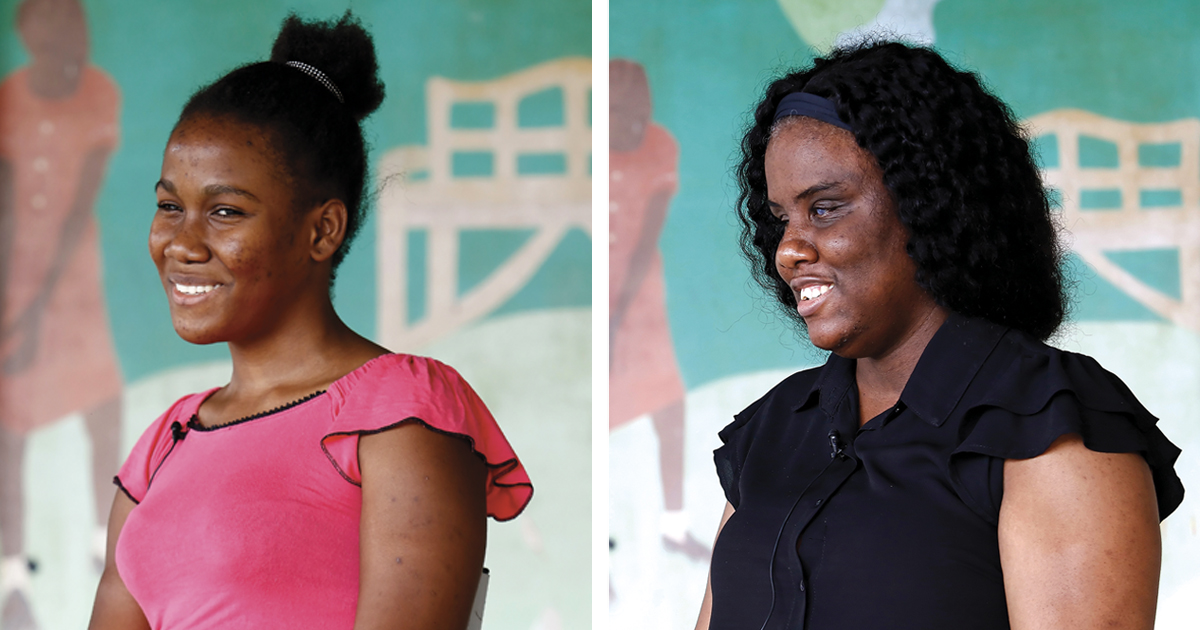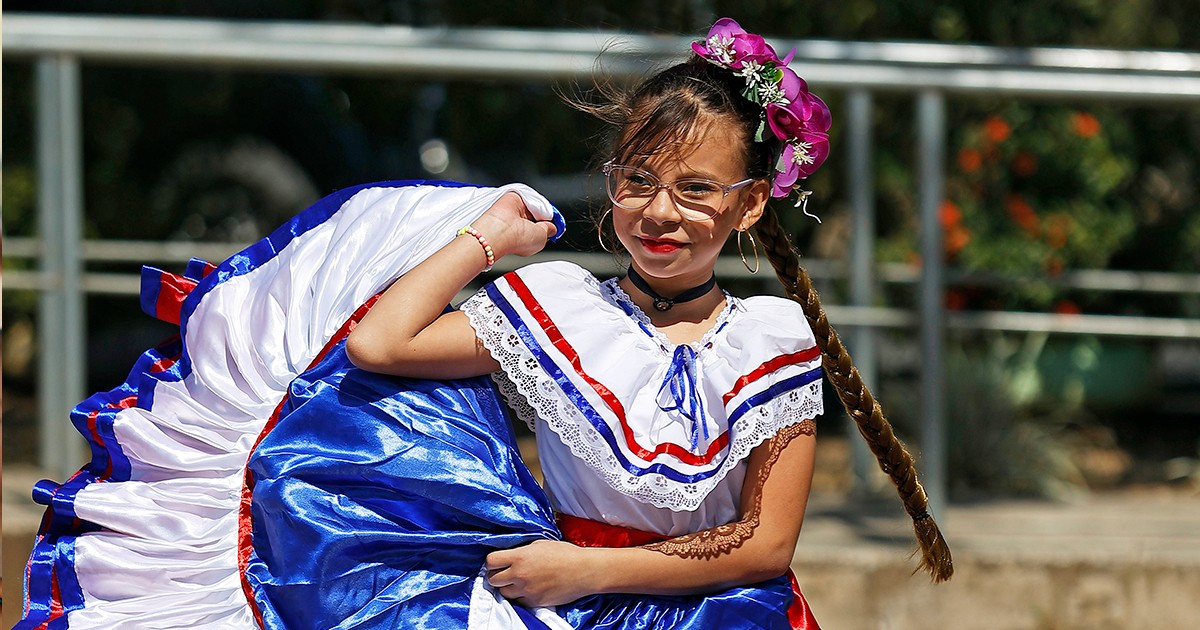(Above) “My dream is to have my own business,” says Nicola (left), head girl at The Salvation Army’s School for the Blind and Visually Impaired in Kingston, Jamaica. Sashana Wauchope (right), an English and literature teacher at the school, also attended as a student
As the resource/media co-ordinator for Canada and Bermuda’s international development department, my favourite part of the year has always been the annual Self-Denial (also known as Partners in Mission) trip.
Being able to travel and hear stories of hope and transformation in communities beyond our borders has been one of the greatest privileges of my life, and after almost two long years of travel bans due to COVID-19, I was excited to finally get back out there and witness the life-saving ministry taking place across Jamaica.
One of the highlights of my trip was the opportunity to visit The Salvation Army’s School for the Blind and Visually Impaired in Kingston, Jamaica.
Around the world, The Salvation Army has been instrumental in providing high-quality education to children and youth. From schools catering to children with albinism and physical disabilities in Africa, to schools teaching students who are blind and visually impaired in the Caribbean, The Salvation Army ensures no child is left behind.
Established in 1927, this is the only school in the entire country that provides an education and a home to youth who are blind and visually impaired.
When we first arrived, we were greeted by a crowded room filled with teachers, students and their families, who came to show their appreciation. With more than 120 students, this school is a true testament to hope and resilience. It was clear that everyone—from students to parents to teachers—is proud of and grateful for the work of The Salvation Army.
Accepted and Included
Sashana Wauchope, an English and literature teacher at the school, is one of them. She is also blind and began attending the school when she was five years old.
“It was a joyous experience,” she says. “This school taught me how to feel included.”
Wauchope was inspired to teach at the school because she wanted to give back to her community.
“I wanted students to feel the same way I felt while attending school,” she says. “I want them to feel loved, accepted and included. When I see students passing their exams and finding work, I can say I did my part.”
When we invest in the inclusion and education of all students, nations are empowered with leaders who are kind, empathetic and compassionate. Wauchope’s full-circle testimony is evidence of that, and her story isn’t the only one.
The guidance counsellor, information technology teacher and more are also former students.
Education and Care
We were then introduced to Nicola, the head girl of the school. The first thing I noticed was Nicola’s bright smile—her joyful and shining disposition was contagious and illuminated an entire room.
Like Wauchope, she is also blind and doesn’t let visual impairment keep her from a bright future.
“In the future, I’d like to be an entrepreneur,” she says. “My dream is to have my own business. I hope it’s a family business so I can take care of my family.”
When asked how the school is preparing her for the future, she smiled and said, “By giving me the education and care I need.”
After meeting both her and Wauchope, I know that the students there are being prepped and primed for a promising future.
Passion and Love
The last stop on our tour was the principal’s office, where we met Iyeke Erharuyi, the leader of the school.
Managing the only school for the blind in the entire country is not an easy task, but Erharuyi is driven by his passion and love for the community.
“The impact of educating a child who is blind is significant to our community,” he says. “If this school didn’t exist, the country would be in trouble. Many of our faculty used to attend the school, and each of them contributes to the development of our society. We cannot underestimate the power our students have on our future.”
While speaking to Erharuyi, his gratitude and passion were clear.
“Our mission is to cater to the needs of every single student,” he says. “We’ve been here since 1927, and it takes the grace of God for us to be doing this for so many years.”
I’m reminded of Erharuyi’s parting words, words I can still hear today when I think of The Salvation Army’s school for the blind: “We thank God,” he said. “And we thank The Salvation Army.”
Kathy Nguyen is the resource/media co-ordinator in the international development department.
Photos: Mark Yan
This story is from:










Leave a Comment